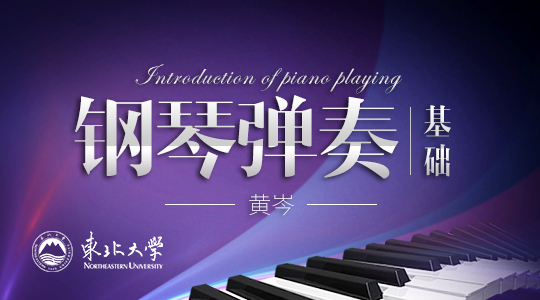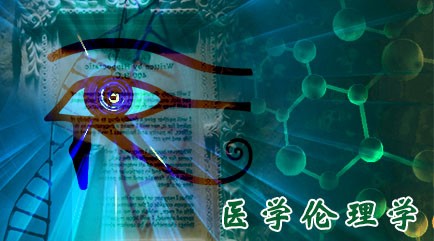
当前课程知识点:New Media and Cultural Studies > Final Exam > Final Exam > Discussion Questions of Lesson 8
返回《New Media and Cultural Studies》慕课在线视频课程列表
( Choose One to Answer)
1. Please analyze Nongfu Spring’s advertisement from the perspective of spatial criticism.
“We don’t produce water, we just transport water from the nature.” This advert slogan of Nongfu Spring has dominated the advertising industry for many years. For publicity, Nongfu Spring spent nearly a year in the Changbai Mountain water source, filmed and produced a national-level pure ecological geography documentary “Great water source gives birth to marvelous life”. The documentary includes scenes such as a close-up view of a tiger focusing on drinking water, a sable sticking out its head in the snow, snow on a branch fall at a bird’s cheering, mandarin ducks playing in the water, and an elk deer finally appearing after seven days of waiting. Please think about: (1) Is the advertisement of Nongfu Spring a good one? (2) Please analyze from the perspective of spatial criticism.





2. Please talk about your view on fragmented space from the perspective of spatial criticism based on our daily experience.
Today, there is a popular saying on the internet: “The longest distance in the world is not between life and death, it’s when I’m standing in front of you, yet you’re looking down at your phone.” When waiting at a bus stop, at parties with friends, during spare time, people would take out their mobile phones to scroll down posts in Microblog and WeChat, or watch videos. These people are known as “smartphone zombies”. For many smartphone zombies, the world on mobile phone screen is even more important than real life. The group of such “zombies” is growing, and the indifference of the information age is also spreading. The emergence of “smartphone zombies” stems from the development of technology and fragmented space. People wish to fill their fragmented time by looking at their screen. But at the same time, we also need to think about: (1) Is playing with mobile phone in fragmented space a good behavior? (2) What impact does this behavior have on us?




“Smartphone zombies” and the use of fragmented space
3. The advent of new media makes the originally dark space very visible. Please analyze its impact on our feelings.
The advent of new media makes the originally dark space very visible. For example, today when our classmates, friends or relatives go abroad, we don’t feel really separated from them, because we can still have face-to-face chats via WeChat, QQ and other social media tools. That is to say, the advent of modern information technology diminished the sense of distance in space. This reminds us of the poem by poets in the past about bidding farewell: “A sole boat disappears into where the river ends and joins the sky, and eventually all we can see is the water. One more drink with your dear friend before you leave, for you’ll hardly see each other after you head west.” From this poem, we can experience the life and feelings of people in the past, and how their heart sunk due to the farewell and from missing each other. Based on this, let’s think about: (1) In today’s new media context, why the scenario of bidding farewell like people in the past don’t exist anymore? (2) When new media made the originally dark space visible, what impact does it have on our feelings?


Video chat with family
返回《New Media and Cultural Studies》慕课在线视频列表
-1.1 Culturalism
--1.1
-1.2 Marxist Theory
--1.2
-1.3 Structuralism and Post-structuralism
--1.3
-1.4 Gender and Sexuality
--1.4
-Unit Test 1
-Discussion Questions of Lesson 1
-2.1 Aristotle’s Classical Rhetoric
--2.1
-2.2 Kenneth Burke’s New Rhetoric
--2.2
-2.3 Frame and Metaphor: Two Weapons in the Fight for Discourse
--2.3
-2.4 The Concepts of Our Time and the Secret to their Creation
--2.4
-Unit Test 2
-Discussion Questions of Lesson 2
-3.1 Understanding Signs: From Saussure to Pierce
--3.1
-3.2 The Power Relationship Behind Signs
--3.2
-3.3 The Landscape of Signs in the Cyber World
--3.3
-3.4 A Model of Communication Semiotic Criticism
--3.4
-Unit Test 3
-Discussion Questions of Lesson 3
-4.1 Feminist Stance in Romance Web Fiction
--4.1
-4.2 Paradox of Body Consumption
--4.2
-4.3 Women’s Empowerment in New Media
--4.3
-Unit Test 4
-Discussion Questions of Lesson 4
-5.1 Optimistic Theories of Cultural Consumption
--5.1
-5.2 Pessimistic Theories of Cultural Consumption
--5.2
-5.3 Fan Culture and Convergence Culture
--5.3
-Unit Test 5
-Discussion Questions of Lesson 5
-6.1 Understanding Rituals
--6.1
-6.2 Media Events and Media Rituals
--6.2
-6.3 Interaction Ritual Chains
--6.3
-6.4 New Media Ritual Criticism
--6.4
-Unit Test 6
-Discussion Questions of Lesson 6
-7.1 Overview of Subcultural Studies
--7.1
-7.2 Birmingham School’s Subcultural Studies
--7.2
-7.3 The Incorporation of Subcultures
--7.3
-7.4 Case Studies of Subcultures
--7.4
-Unit Test 7
-Discussion Questions of Lesson 7
-8.1 Space and Spatial Epistemology
--8.1
-8.2 Spatial Practice and Power Production
--8.2
-8.3 Lefebvre’s Theory of the Production of Space
--8.3
-8.4 Foucault’s Theory of Space Discipline
--8.4
-8.5 Cultural Consequences of the Production of Space
--8.5
-Unit Test 8
-Discussion Questions of Lesson 8
-9.1 Telegraph: Technology and Cultural Changes
--9.1
-9.2 Virtual Reality: Technology and Space-Time Restructuring
--9.2
-9.3 Mobile Phone: Technology and Subjectivity Alienation
--9.3
-9.4 WeChat: Technology Reshapes Social Relationships
--9.4
-Unit Test 9
-Discussion Questions of Lesson 9
-10.1 Five Shapes of Body
--10.1
-10.2 Philosophical “Adventure” of Body
--10.2
-10.3 The Code of Power Behind Body
--10.3
-10.4 Body Politics in the Era of New Media
--10.4
-Unit Test 10
-Discussion Questions of Lesson 10
-11.1 Internet Freedom: Media Imperialism in the Global Village
--11.1
-11.2 Cyber Diplomacy: The New Blue Ocean of Global Political Communication
--11.2
-11.3 Cyber Terrorism: The Challenge of New Media Decentralization
--11.3
-Unit Test 11
-Discussion Questions of Lesson 11
-12.1 Overview of Research Methods
--12.1
-12.2 Ethnography
--12.2
-12.3 Focus Group
--12.3
-12.4 Interactive Narrative
--12.4
-Unit Test 12
-Discussion Questions of Lesson 12
-Final Exam




